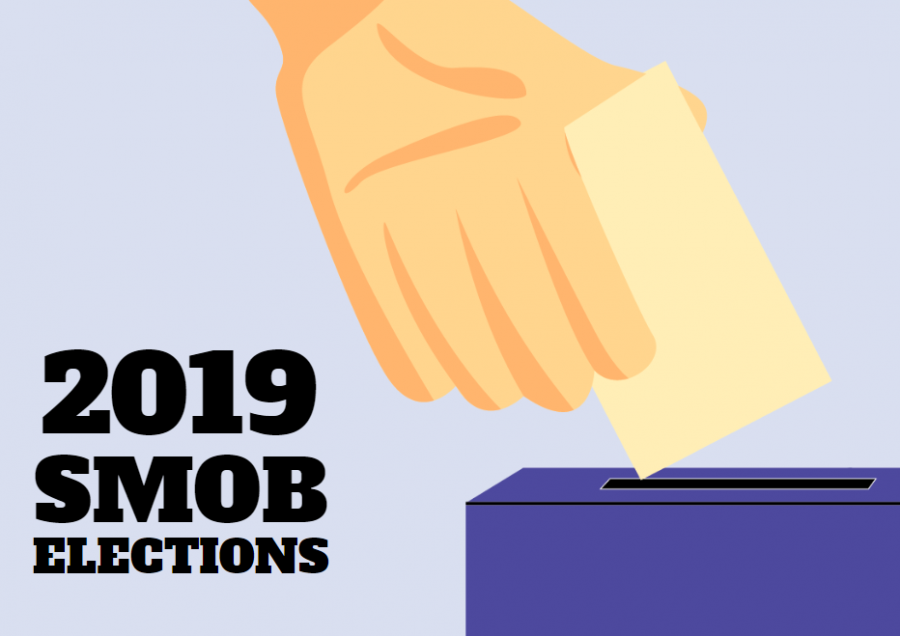SMOB election preview
Whitman students widely favor Tinbite, but many doubt the significance of the position itself
Nate Tinbite was elected Wednesday to be Montgomery County’s 42nd SMOB.
April 23, 2019
MCPS middle and high school students will vote tomorrow to elect their next Student Member of the Board. While 13 candidates initially ran for the position, the county SGA selected Nate Tinbite—a junior from Kennedy High School—and Zoe Tishaev—a junior from Clarksburg High School—as the two finalists. The winner will replace the current SMOB, Richard Montgomery senior Ananya Tadikonda.
Tinbite, who ran last year but failed to become a finalist, is a founding member of MoCo Students for Change and serves as the current president of MCR, the county-wide SGA. He was also the Chief of Staff for former SMOB Matt Post. He hopes to be the first African-American SMOB in over a decade.
“I’m solely focused towards making sure that we level the playing field,” Tinbite said. “I hope to bridge racial, religious and socioeconomic barriers that are blocking us from reaching our full potential.”
Tinbite plans to accomplish this by providing otherwise costly services such as driver’s ed, test tutoring and college prep directly in schools. He also seeks to provide more education on different career pathways for students who will not be attending college.
Tishaev is also a member of the MCR, as well as the Montgomery County Council of PTAs. Last year, she worked on local businessman David Blair’s campaign for County Executive. As SMOB, Tishaev plans to push for more public transportation and better school lunches. Her main effort, however, is to bridge the communication gap between students and their representatives.
Tishaev worries that students forget all about their SMOBs once they elect them. For her, increasing student interactions with their SMOB is a prerequisite to bringing about more significant change.
“Once we bridge this communication gap, once we have that mobilization of students that are passionate about the issues that involve them every single day, then we can start pushing to other issues such as closing the achievement gap,” Tishaev said.
With only a few days left before the election, Tinbite seems poised to win over an unenthusiastic electorate. In an informal survey of 42 Whitman students, Tinbite leads with 78.6% of the vote. Tishaev is far behind, with only 11.9% of the vote. Another 7.5% of voters say that they will be abstaining from the vote.
Despite the fact that SMOBs in Montgomery County wield much more power than SMOBs elsewhere—with equal voting rights to the other members of the MCPS Board of Education—students largely feel uninformed and uninterested.
Sophomore Chloe Lesser will not cast a ballot because she doesn’t trust that either candidate will prove effective. She doesn’t see the use in voting, she said.
“SMOBs don’t really accomplish anything, so it’s not like my vote actually changes anything,” she said.
Pyle eighth-grader Hari Maheswaran is also apathetic; he said many of his friends are voting based on who they like more as a person.
“Nobody cares about SMOB,” Maheswaran said. “The school hasn’t really changed and most of the campaign promises are fake. Candidates say they want phones during lunches, for example, but that won’t happen. I’m only voting for Nate because he seems like a nice guy and because he visited our school.”
Even in schools with high minority percentages, the types of schools that Tinbite aims to represent, students are largely apathetic and ignorant, Northwood junior Kaylah Tengeya said.
“If you were to ask students, ‘What do you think are the candidate’s main policies?’ I don’t think they would really be able to say,” Tengaya said. “I don’t think students really know what each candidate wants to do.”
Some students, however, still have faith in the position. Michael Solomon, the co-president of MoCo Students for Change, underlined the significance of SMOBs.
“The SMOB is an enormously underrated position,” Solomon said. “I think we need to do a better job of making students understand the significance of that position and the potential that every student who sits at the board table has to change the lives of hundreds of thousands of kids.”









